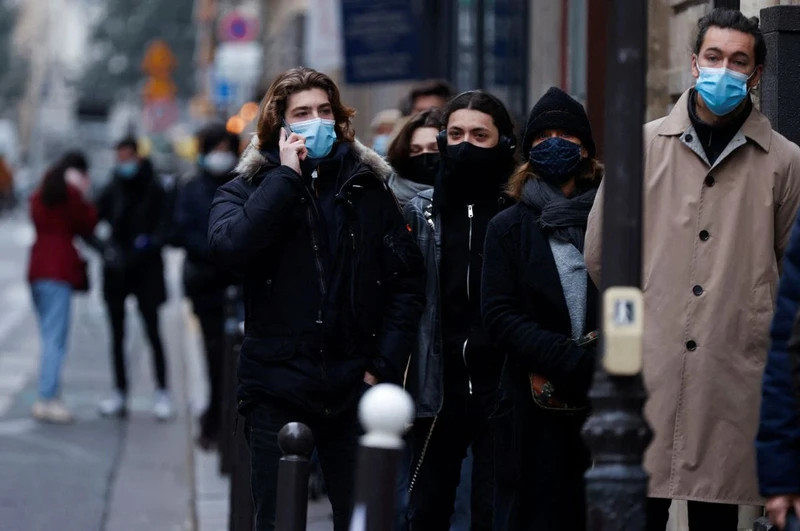This reality threatens to increase the pressure on the global health system, which has been facing many difficulties due to a severe workforce crisis.
The trend of safe and flexible adaptation to the COVID-19 pandemic has been spreading around the world, as countries strive to bring life back to the new normal. The COVID-19 pandemic has been gradually brought under control thanks to breakthroughs in vaccine research and development, and global vaccination campaigns. However, over the past few days, many areas of the world have witnessed a resurgence of COVID-19 cases.
Germany recently recorded nearly 114,200 new infections in a day and the incidence rate in seven days has been on the rise. The Federal Ministry of Health of Germany warned that the actual number of infections may be three times higher than the published figures. The US recorded hundreds of deaths from COVID-19 every day.
Canada reported 5,070 COVID-19 hospitalisations as of October 3, more than twice as high as the same period last year. Singapore is forecast to face a new wave of COVID-19, with an average of 15,000 infections per day by mid-November.
The above fact has served as a reminder to the whole world that the COVID-19 pandemic is not over yet. The SARS-CoV-2 virus is alive and constantly mutating, threatening to cause new outbreaks at any time. Indian health officials have recently warned of the threat from the Omicron BF.7 variant after the Gujarat Biotechnology Research Centre detected the first case infected with this variant in the country.
Singapore's health sector has also been closely monitoring the epidemic situation and the impact of the XBB sub-variant infection wave, which is also known as BA.2.10, on the national health system.
After many countries removed epidemic prevention measures, social contact activities have almost been restored, making the pandemic easy to spread. Notably, vaccination rates are slowing down in some countries. The number of weekly doses of vaccines administered in September 2022 in the European Union (EU) was only about 1-1.4 million doses, much lower than the same period last year (6-10 million doses per week).
There are many reasons for the above situation. A part of people believe that the injection of basic doses and infection with COVID-19 created immunity, so they do not continue to inject booster doses.
In addition, EU officials have recently approved several new booster vaccines against sub-lines arising from the Omicron variant, which can make people take more time to consider and choose a vaccine for a booster dose. However, the biggest challenge for the vaccination campaign is that people mistakenly believe that the pandemic is over so they have a subjective mentality.
The risk of a new strong outbreak of the COVID-19 pandemic, along with an increase in seasonal flu cases in the winter, can push health systems in many countries into difficulty. The health sectors of many nations such as the US and Canada are currently struggling with the shortage of human resources. Several emergency departments at hospitals in Canada were forced to close this past summer due to a shortage of staff.
Prolonged COVID syndrome with symptoms such as shortness of breath, chest pain and heart palpitations, made many workers who were infected with COVID-19 unable to return to work, leading to human resource gaps.
The negligent and subjective psychology of a part of some people, together with factors such as the approaching cold winter and loosened epidemic prevention measures, are the reasons for the new outbreaks of COVID-19. As the spectre of COVID-19 still lingers, the countries should push ahead with plans to respond to new outbreaks, while being ready for the emergence of any other pandemics.
















